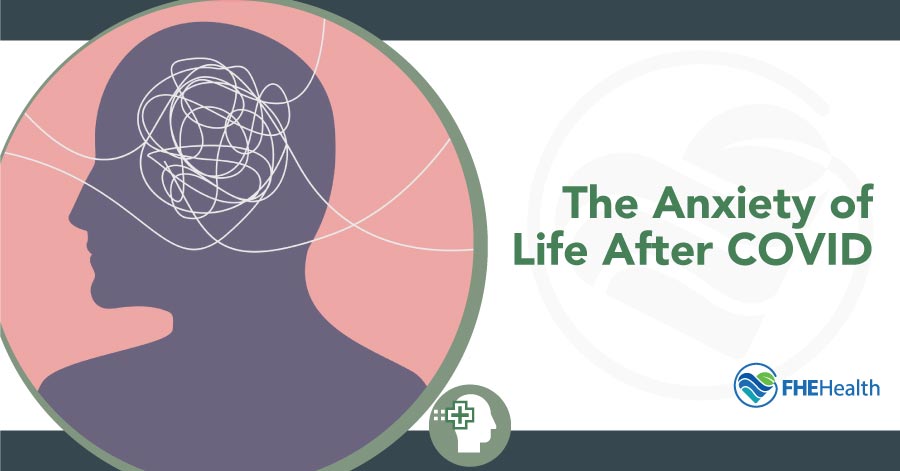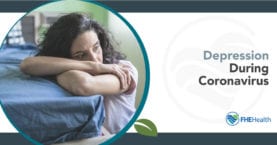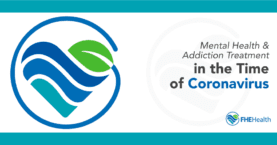
It’s been well over a year since life first started to look a little different. In the West in late 2019, it seemed like the coronavirus was a distant problem, but by March 2020, it was here to stay. Once the World Health Organization declared the novel coronavirus, now known as COVID-19, a global pandemic, everyone was forced to make difficult adjustments to life in lockdown. After so many months of social distancing, isolation, masking and fear, it’s natural that people are feeling anxious about post-COVID life and returning to normal.
But will normal ever be the same again? What will weddings, parties and hanging out with friends be like after people are vaccinated? How can people ease back into a rich social schedule after so much time alone? It’s all about balance and being patient with yourself.
What Will Life Look Like After COVID-19 Pandemic?
As talk continues about “getting back to normal,” it can be hard to picture what normal even looks like anymore. The reality is that while widespread vaccination will eventually make it possible to return to a semblance of life before COVID-19, mass global events like the pandemic leave a lasting impact on society. The changes that are likely to stick around even after everyone is vaccinated are workplace-related, healthcare-based and social.
The need for people to stay home has proven that many jobs can be performed remotely. While some bosses still subscribe to the idea that office facetime is necessary for productivity, the majority of companies are realizing they can save money on office space by having their employees continue to work remotely. This is a positive change that will allow working people to spend more time with their families and less time commuting, and even give them the freedom to work abroad.
The return to “normal” might be the most worrying part for many people. Masks are likely to stick around even as people are still receiving vaccines. But the emphasis on hand hygiene over the last year could be life-changing for many people who never gave it much thought prior to the pandemic.
There was speculation in 2020 from news outlets like the BBC that the virus would be the death of the handshake. However, it’s human nature to seek the physical connection that a handshake symbolizes, so it seems unlikely it’s gone for good.
The pandemic has also exposed cracks in the healthcare system that were overlooked prior to 2020, with nurses being hailed as front-line heroes for their efforts. The trials of COVID-19 have made it obvious that proper access to mental and physical health care shouldn’t be a privilege just for the rich but a human right for everyone. The health of individuals affects society as a whole.
Why People Are Anxious About Post-COVID Life
Many people are anxious about post-COVID life in some capacity. At this point, that’s a normal feeling to experience because we’ve been away from that lifestyle for so long that it’s become unfamiliar. One of the major concerns affecting individuals is the expected socialization after being fully vaccinated.
For introverts especially, time alone at home has become a comfortable way to spend free hours rather than packing each day full of activities, meetings, gatherings and outings.
After adjusting to a slower-paced way of life, the thought of returning to pre-pandemic levels of in-person socialization can feel overwhelming and exhausting. Be kind to yourself and continue to put your own mental health first, even after it’s safe to make social plans. Just because you can, it doesn’t mean you’re obligated to pack your social calendar to capacity.
Some people are understandably anxious about returning to work in person after spending over a year working remotely. This might be because of social anxiety after so much isolation or anxiety about being in large crowds again when commuting in a metropolitan area. Unfortunately, if your employer requires you to return to full-time, in-person work, there’s little you can do but try to make the experience as easy as possible for yourself in other ways.
Listen to a podcast you enjoy on the commute to take your mind off the nerves you’re experiencing. Refrain from making too many plans outside of work right off the bat so you have time to rest your mind and body in the evenings. It takes time to become accustomed to the increase in activity and socialization again, which can be draining.
If you have a good relationship with your boss or a more flexible position that enables remote work, consider easing the anxiety you’re experiencing by talking to your employer about alternative arrangements even after it’s safe to return to work. If the work you’ve been producing from home has been top-quality, you might be able to ask to work one or two days a week from home permanently. At the very least, your employer might be open to a phased approach for returning to the office, starting with one or two days a week.
Post-COVID life will be anxiety-inducing for those who’ve been significantly impacted by the health scares associated with the virus. After months of excessive handwashing and distancing, individuals may develop hypochondria, anxiety about being in a crowd or anxiety about the potential for future pandemics. If these thoughts are all-consuming and affecting your daily life, consider seeking help from a health professional at FHE.
The Pandemic, Mental Health and Cave Syndrome
The pandemic has undoubtedly affected the mental health of Americans over the past year, and some symptoms may be ongoing even after life returns to a semi-normal state. According to the Kaiser Family Foundation, roughly four out of 10 adults in the United States experienced symptoms of depression or anxiety during the pandemic.
In addition to stress about health, work and socialization, many individuals have experienced weight gain as a result of inactivity throughout lockdown, resulting in stress about weight loss. According to a recent study, the average American gained two pounds per month throughout the pandemic. A lack of confidence in your body can make the idea of socialization more intimidating.
Some people might be experiencing symptoms of cave syndrome following the COVID-19 lockdowns, which is exactly what it sounds like. People with cave syndrome are reluctant to return to normal life because they’ve become accustomed to isolation and now enjoy it.
Seek Support If You’re Struggling
If you or a family member is struggling with your mental health as a result of COVID-19 isolation or experiencing anxiety about returning to a normal pace of life, know that you’re not alone. The experienced, compassionate team at FHE can help you with solutions for managing anxiety or depression. Counselors are available to take your call 24/7 at (833) 596-3502.









